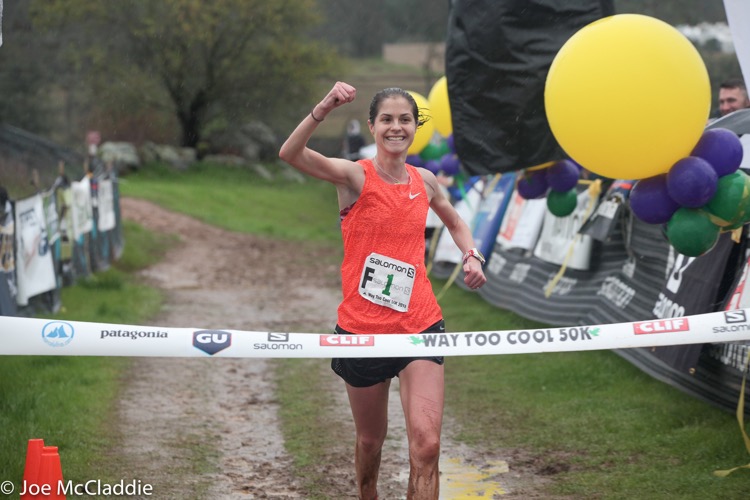When I initially had a conversation with the coaching duo Megan and David Roche, it was about discussing the relationship between coaches and athletes when it comes to disordered eating. But something else jumped out. Coaching and the ultrarunning community are about way more than running. With lives getting turned upside down due to COVID-19, those supportive relationships are especially important right now.
Often, when an athlete is thinking about working with a coach, it is often to get help with their goals, improve their performance or have someone else create their training plan. But coaching is so much more. When asked about their role as coaches, Megan and David emphasized that they offer unconditional support. Life is complicated, just like ultrarunning, and moving toward self-acceptance is just as important as moving toward any finish line.
When issues come up, from really small questions to big life events, they emphasize that it’s important to talk about how athletes are feeling. But they also try not to make every conversation about tough moments and uncertainty. Instead, for each individual, they try to set a narrative of positive reinforcement by “never judging an athlete and helping them find joy, while modifying their training to help them feel stronger for the long-term.”
COVID-19 is a world-wide struggle that mirrors the doubts individual athletes might experience, whether it’s from injury, disordered eating or something else. “Our main goal is to continually remind athletes that they are amazing. Performance, like self-acceptance, is a long-term process, and that’s part of the adventure.” When asked about COVID-19 and running, they responded, “This is going to be a really tough time for many athletes. We just want to emphasize that we’re all in this together and having anxiety or uncertainty is OK.”
They also recognize that sometimes they are part of a “rock band,” meaning that they are part of a team of qualified experts that helps keep their athletes healthy and safe. As part of this team, they are willing to be the “back-up bass player” and give their athletes space as needed, while also being present and patient. Megan is an M.D. and PhD researcher in epidemiology, and says, “That same principle applies to COVID-19. We can read studies and guidelines, but our main goal is to be a small, steady, supportive part of an athlete’s life.”
The initial premise of our discussion was their relationship with athletes and eating behaviors, and I wondered if they used themselves as examples for their athletes when it comes to food. They try not to use themselves as models but said, “Eating should be delicious and fun, and it’s part of life.” Dinner is Megan and David’s most important meal because it’s a time of gathering and enjoying meals together. This can range from Burger Sunday to burrito bowls or pizza. It is in this wide range of foods that they like to think of a picture of long-term health. That same approach applies to events like the pandemic — everyone has different internal responses to external stimuli and there is no one-size-fits-all answer.
We are facing a new world from every angle right now and their goals speak volumes about how we can all support each other in this time of uncertainty. As Megan and David said, “Everyone has something they are going through,” and they just want their athletes and others to know they are open to all topics. “We are going to get through it together.”


